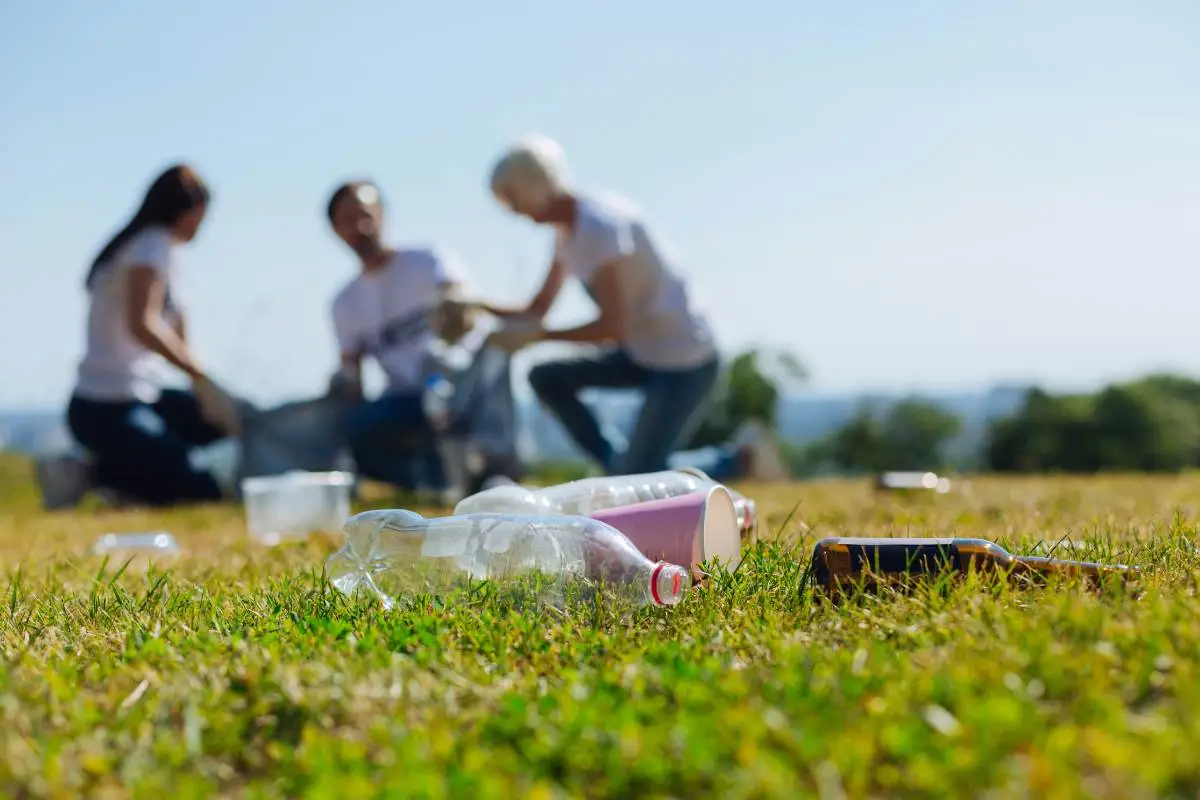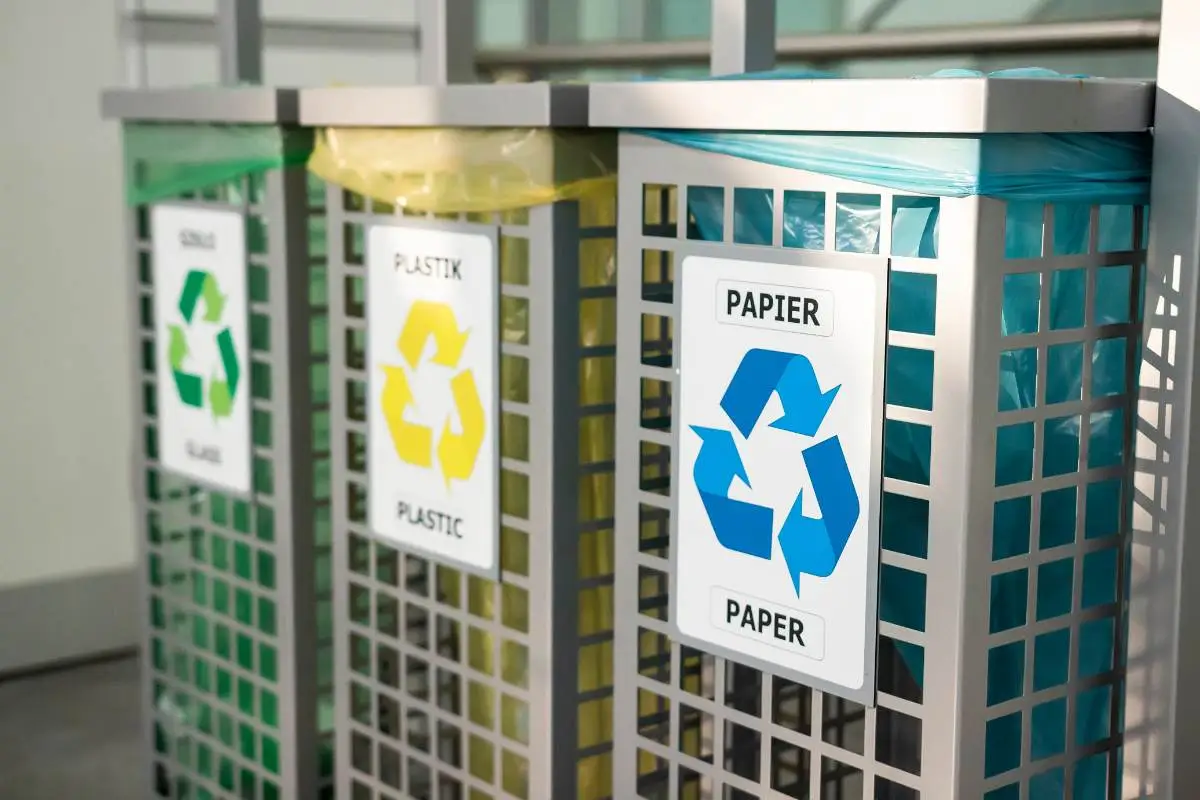Recycling’s Impact: Environment’s Sustainable Future
Recycling for a Sustainable Future: The Impact of Recycling on the Environment
Did you know that every day, millions of tons of waste are generated worldwide? From plastic bottles and packaging to paper and electronic waste, our throwaway culture has reached alarming levels. But there is a solution that can help mitigate this environmental crisis: recycling. Recycling plays a crucial role in creating a sustainable future for our planet. In this article, we will explore the impact of recycling on the environment and why it is essential for everyone to actively participate in recycling efforts. So, let’s delve into the fascinating world of recycling and discover how it can make a difference.
The Importance of Recycling for a Sustainable Future:
Reducing Landfill Waste
Recycling helps in reducing landfill waste by diverting materials from being buried in landfills. When waste is not recycled, it ends up in landfills where it decomposes and releases harmful substances into the soil and groundwater. By recycling, we can reduce the amount of waste that goes into landfills and minimize the negative impact on the environment.
Preserving Natural Resources
One of the key benefits of recycling is the preservation of natural resources. When we recycle materials such as paper, plastic, and metal, we reduce the need for extracting virgin materials from the earth. This helps in conserving resources like trees, oil, and minerals, which are essential for the production of new products. By recycling, we can ensure that these resources are used more efficiently and sustainably.
Conserving Energy
Recycling requires less energy compared to extracting, refining, and processing raw materials. For example, recycling aluminum cans saves up to 95% of the energy needed to produce new cans from bauxite ore. Similarly, recycling paper saves around 60% of the energy compared to making paper from virgin wood pulp. By conserving energy through recycling, we can reduce greenhouse gas emissions and combat climate change.
Minimizing Pollution
When waste is not recycled and ends up in landfills or incinerators, it can release harmful pollutants into the air, water, and soil. Recycling helps in minimizing pollution by reducing the amount of waste that is sent to these disposal facilities. By recycling, we can prevent pollution and protect the health of both humans and ecosystems.
Reducing Greenhouse Gas Emissions
Greenhouse gases, such as carbon dioxide and methane, contribute to climate change. Recycling plays a vital role in reducing greenhouse gas emissions by avoiding the production of new materials. The manufacturing of products from recycled materials requires less energy and emits fewer greenhouse gases compared to using virgin materials. By recycling, we can help mitigate climate change and create a more sustainable future.
Creating Jobs and Boosting the Economy
The recycling industry creates job opportunities at various stages, from collection and sorting to processing and manufacturing. Recycling also helps in boosting the economy by generating revenue from the sale of recycled materials and reducing the costs associated with waste disposal. By supporting recycling initiatives, we can contribute to job creation and economic growth in our communities.
Promoting Circular Economy
Recycling promotes the concept of a circular economy, where resources are kept in use for as long as possible and waste is minimized. Instead of the traditional linear economy, which follows a “take-make-dispose” model, the circular economy aims to close the loop by recycling and reusing materials. By embracing the principles of a circular economy, we can reduce waste generation and move towards a more sustainable and efficient system.
Encouraging Sustainable Consumption
Recycling encourages sustainable consumption by promoting the idea of reducing, reusing, and recycling. It raises awareness about the environmental impact of our purchasing decisions and encourages us to make sustainable choices. By recycling, we can extend the lifespan of products and reduce the demand for new resources, leading to a more sustainable and responsible approach to consumption.
Investing in a Cleaner Future
By recycling, we are investing in a cleaner and healthier future for ourselves and future generations. It is a proactive step towards reducing waste, conserving resources, and mitigating the negative impacts of climate change. By taking action now, we can create a better world for the generations to come.
Raising Awareness and Changing Attitudes
Recycling initiatives help raise awareness about the importance of waste management and the benefits of recycling. They can also influence attitudes and behaviors towards waste and encourage individuals to adopt more sustainable practices. By spreading knowledge and promoting positive attitudes towards recycling, we can create a culture of sustainability and make a lasting impact on the environment.
Engaging Communities in Recycling Programs
Community involvement is crucial for the success of recycling programs. By engaging communities in recycling initiatives, we can encourage active participation and create a sense of collective responsibility. By working together, we can establish effective recycling systems and make a significant difference in reducing waste.
Educating the Next Generation
Educating the next generation about the importance of recycling and waste management is fundamental for creating a sustainable future. By teaching children about the benefits of recycling and how to properly dispose of waste, we can instill lifelong habits and ensure that recycling becomes a natural part of their daily lives.
Fostering Innovation and Technology Advancements
Recycling drives innovation and technology advancements in waste management. As the demand for recycling increases, there is a need for more efficient and effective recycling processes and techniques. This creates opportunities for research and development, leading to new technologies and solutions for recycling. By fostering innovation, we can improve recycling practices and make them more sustainable and economically viable.
Collaborating with Industries for Effective Recycling Solutions
Collaboration between recycling industries and other sectors is essential for developing effective recycling solutions. By working together, we can promote the use of recycled materials in manufacturing processes and encourage the design of products that are easier to recycle. Collaboration also helps in overcoming barriers and challenges in the recycling industry, leading to more efficient and streamlined recycling practices.
Leveraging Social Media to Drive Recycling Initiatives
Social media platforms provide an excellent opportunity to raise awareness about recycling and engage a wider audience. By leveraging social media, we can share information, educate people about recycling practices, and inspire them to take action. Social media campaigns and initiatives can create a significant impact and drive change at a global scale.
Supporting Government Policies and Regulations
Government policies and regulations play a crucial role in promoting recycling and waste management. By supporting and advocating for policies that prioritize recycling and establish incentives for sustainable practices, we can create a favorable environment for recycling initiatives. It is essential to work in collaboration with governments to implement effective recycling systems and ensure their success.
Conclusion:
In conclusion, recycling has a significant impact on the environment and is a crucial component of building a sustainable future. By reducing landfill waste, preserving natural resources, and minimizing pollution, recycling helps protect our ecosystems and combat climate change. It also creates new job opportunities, drives innovation, and promotes a circular economy. So, it’s time for all of us to take action and make recycling a daily habit. Together, we can make a difference and ensure a greener, cleaner, and more sustainable world for future generations.





